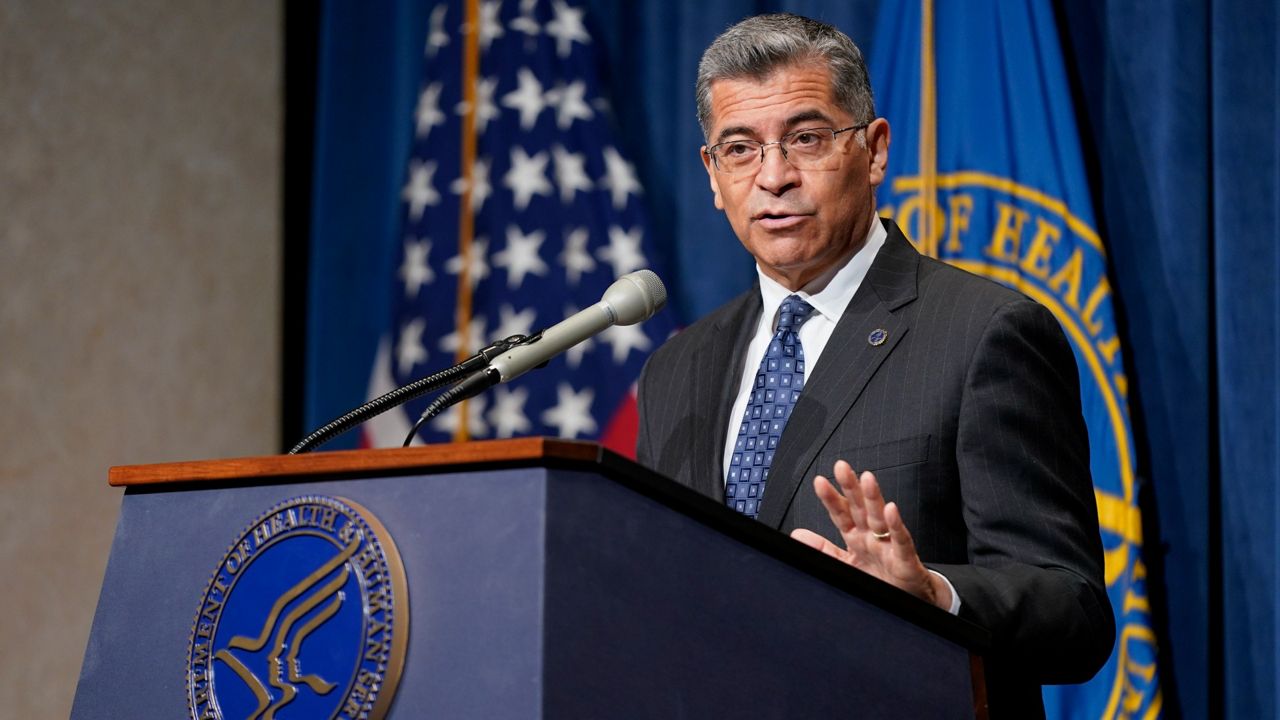The U.S. Department of Health and Human Services on Wednesday issued guidance to the nation’s 60,000-plus pharmacies saying they risk violating federal civil rights laws should they refuse to prescribe medications that can induce abortions or miscarriages.
The directive, which came from the Office for Civil Rights at HHS, cited provisions in the Affordable Care Act that prohibit entities who receive federal funds from “excluding an individual from participation in, denying them the benefits of, or otherwise subjecting them to discrimination on the basis of sex and disability, among other bases, in their health programs and activities.”
It also noted that any pharmacies associated with a public education institution are subject to Title IX, the 1972 provision that prohibits sex-based discrimination in all schools and school activities that receive federal funding.
The HHS guidance – which does not reflect a new policy, but rather serves as an explainer of current laws on the books – says pharmacies cannot deny a person who has been prescribed a medication that could induce an abortion, cannot make recommendations or guidance to the individual seeking the medication or otherwise advise patients on how to consume their prescription.
“We are committed to ensuring that everyone can access health care, free of discrimination,” HHS Sec. Xavier Becerra wrote in a statement. “This includes access to prescription medications for reproductive health and other types of care.”
The directive comes after reports surfaced that individuals had been denied prescriptions for medications like methotrexate, which is used to treat conditions like cancer, psoriasis, lupus and rheumatoid arthritis.
The HHS reminder covers medications like methotrexate, as well as other prescriptions – including mifepristone – that can be used to terminate ectopic or otherwise non-viable pregnancies in individuals less than 10 weeks along.
Wednesday’s announcement is the federal government’s latest effort to protect access to abortion-related services in the wake of the Supreme Court’s ruling in Dobbs v. Jackson Women’s Health Organization, which sent the issue of abortion back to state legislatures to decide.
The federal government is limited in how it can protect abortion access, as Congress would need to pass legislation through both chambers in order to codify the protections offered in Roe into law – an unlikely scenario with an evenly-divided Senate.
Still, Biden and various government agencies have taken a number of steps to address the issue in the weeks since the Supreme Court handed down its decision.
Here are some of those actions:
Formalized instructions to the Departments of Justice and Health and Human Services to push back on efforts to limit the ability of women to access federally approved abortion medication or to travel across state lines to access clinical abortion services
Directed agencies to work to educate medical providers and insurers about how and when they are required to share privileged patient information with authorities
Asked the Federal Trade Commission to take steps to protect the privacy of those seeking information about reproductive care online and establish an interagency task force to coordinate federal efforts to safeguard access to abortion
Will convene volunteer lawyers to provide women and providers with pro bono legal assistance to help them navigate new state restrictions after the Supreme Court ruling
Established the “Reproductive Rights Task Force” to work with other federal agencies and stakeholders to examine how best to protect abortion access and how to prosecute those who break the law
Issued a reminder that states cannot ban Mifepristone, which has been approved by the Food and Drug Administration for nearly two decades, based on “disagreement with the FDA’s expert judgment about its safety and efficacy”
Launched the public-facing ReproductiveRights.gov website to educate Americans about their reproductive health and rights
Released nearly $3 million in funds to “bolster training and technical assistance for the nationwide network of Title X family planning providers”
Met with state lawmakers to discuss specific concerns in areas with more restrictive abortion laws on the books



